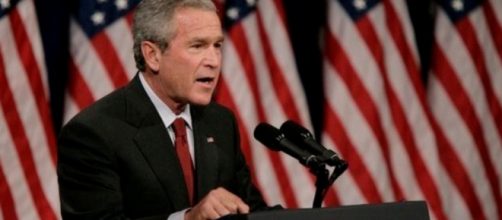On the 11th of September 2001, al-Qaeda members simultaneously hijacked four large passenger aircraft and committed a series of four attacks on landmarks in the United States killing almost 3000 people. Since that date, the world has been united to face the hazardous radicalization. Days and months later, the US former president George Bush made an appearance, pledging that a new war would be established and that war would be fought against every terrorist. It would be waged until all of them had been found, stopped and defeated.
Almost 17 years have passed since that pledge.
Terrorism has evolved to highly technical armed groups. The world is facing a growing intensity and frequency of terrorist attacks. Numerous lone actor attacks are taking place in the UK and Europe. Field battles have been launched between terrorists and armies in the Philippines, Kenya, Nigeria, Afghanistan, Libya, Iraq, Egypt and Syria. Furthermore, radical attacks killed more than 449 people in Europe alone, more than all previous years combined since World War II.
Although religion, internet, illiteracy, and poverty have been accused of being the manufacturers of terrorism, the American War On Terrorism is interconnected with the extreme rise of radical terrorist groups.
Besides the failure of the War On Terror in defeating terrorism, experts accused the war on terror of being the source of more radicalization, racism, Islamophobia, and discrimination in the west.
Reasons for terrorists
Des Freedman and Daya Thussu, in their book “Media and Terrorism: Global Perspectives,” deduced that the heated discussions and pointed legislation against European Muslims in the last two decades were used positively by terrorist groups. For instance, in the case of France, in 2009 a French motion to ban the niqab was introduced, provoking a heated public debate on the issue. Moreover, a heated public discussion in Switzerland ended with banning the construction of minarets, the towers from which the Muslims call to prayer. Finally, the European Court Of Justice in Luxembourg decided in 2017, that the wearing of Islamic headscarves by women at work, should be part of a general policy barring all religious and political symbols.
Such decisions have been used to mobilize support for jihad, and ironically, not just resulted in the coordination of propaganda, but in furthering the notion of a "clash of civilizations." For example, Al Qaeda's group used the headscarf ban in France to their advantage, by using an argument that is emotionally appealing to Muslims around the world who feel oppressed by the West.
Moreover, ISIS media, Horns of Telegram, used the European Court of Justice in Luxembourg decision to radicalize Muslims living in the west and encouraged them to commit lone wolf attacks. One of the radical telegram channels said “Do you still support your country of residence and believe of citizenship and equality.
This is the time of revenge. This the time of destroying and purifying the debauchery and blasphemy societies."
Marian Randall in his study, “9/11 and the Literature of Terror,” accused the media war on terrorism of being the reason behind the spread of extreme speeches online. He identified that after the declaration of the war on terrorism, the jihadist websites increased from 14 to more than 4000 within five years.
It is believed that facing radicalization begins by separating war and terrorism. The solution is not with armed disputes but with declaring war on radicalization and hate speeches. Wars and violence fuel the jihadists and radical groups leaders’ with more arguments to spread more of their ideology. We have to stop the War on Terror, which is possibly the mother of all terror.


